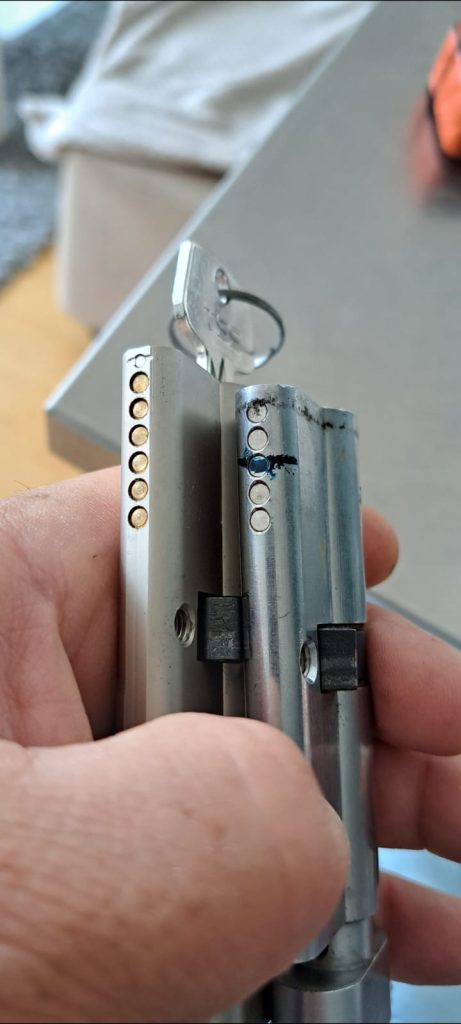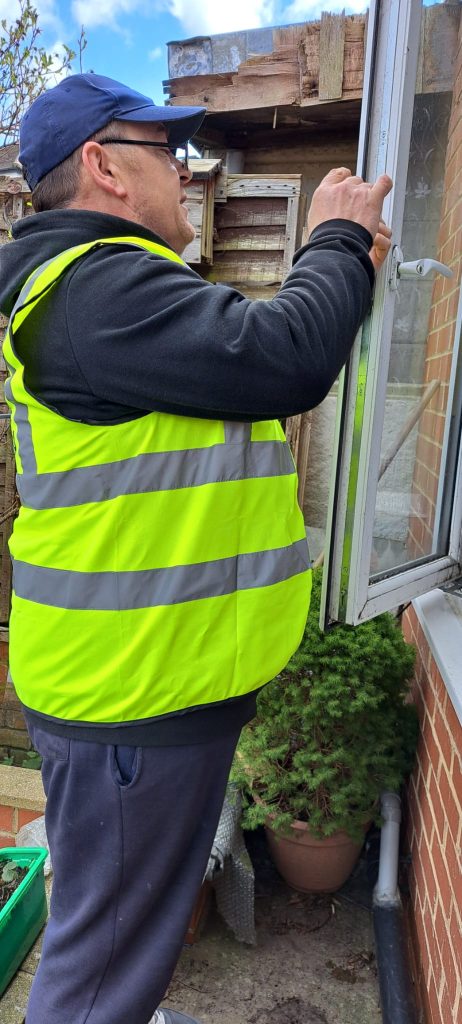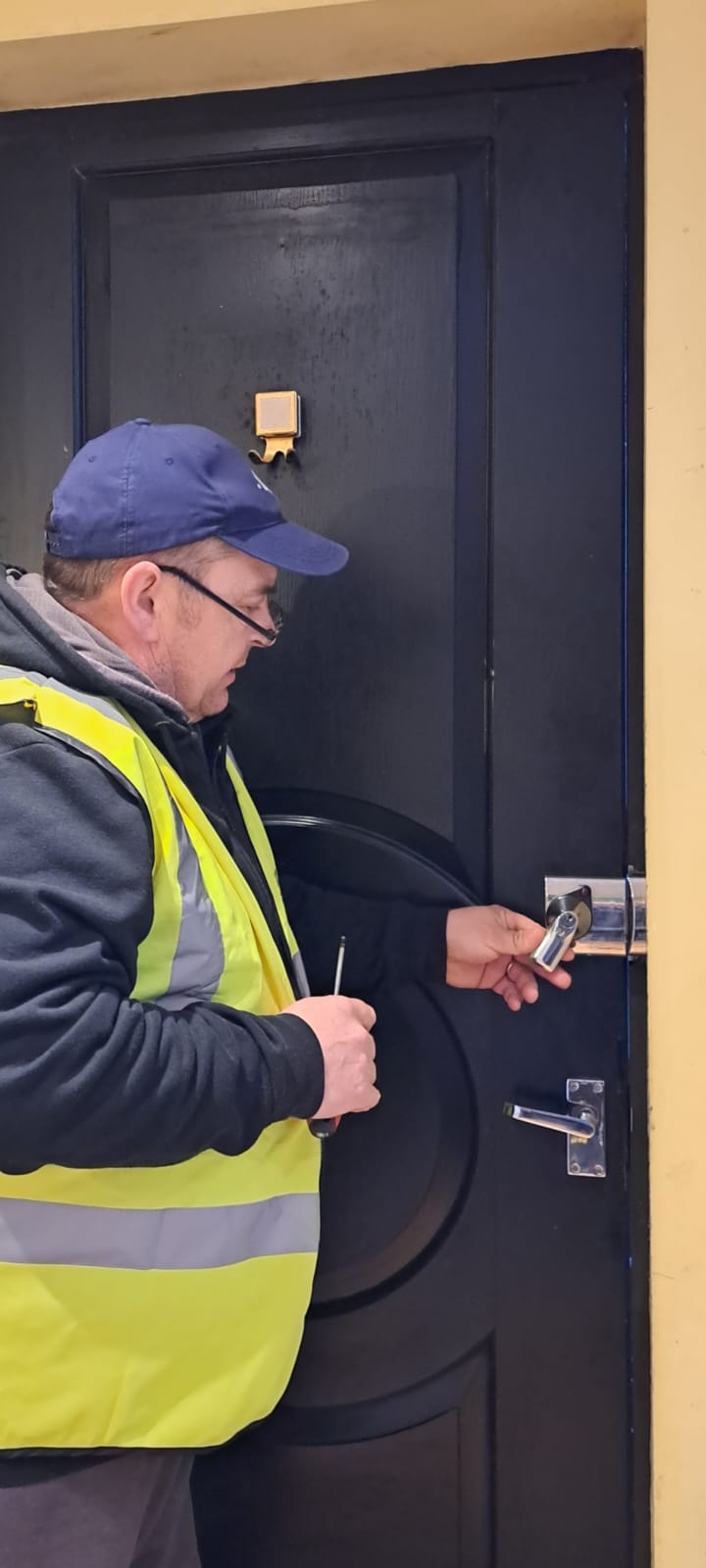| 5 Things To Do When Complaining about a Locksmith! |
The number of rogue locksmiths is increasing in the UK. If you’re unfortunate enough to deal with one of these characters, it can be a frustrating and occasionally frightening experience, with overcharging, poor workmanship, misleading quotes, and intimidation becoming increasingly common.
In this section, we’ll share the five things to do when complaining about a locksmith.
Certainly! Here’s a professionally expanded, UK-focused article with each section as a clear, informative paragraph:
Making a complaint about a locksmith

The UK locksmith industry is largely unregulated. That situation means anyone can operate as a locksmith without formal qualifications or background checks. This lack of oversight means rogue operators are working in the sector.
In a recent MLA survey, 66% of members reported being called to rectify botched jobs by rogue locksmiths within the past year, with 65% citing cases where customers were overcharged by £200 or more.
Despite the lack of regulation, consumers are not powerless. The Consumer Rights Act 2015 and Consumer Protection from Unfair Trading Regulations 2008 protect you from unfair, misleading, or aggressive practices, while Trading Standards can investigate any issues.
Additionally, the Master Locksmiths Association (MLA) ensures its members are vetted and are held to high standards of work and ethics. Working with MLA-approved locksmiths ensures you have recourse if anything goes wrong.
Now, here is what you can do if you run into any unwelcome problems when dealing with a locksmith.
1. Gather and Organise Your Evidence

The first step in making an effective complaint about a locksmith is to gather and organise all relevant evidence. This means keeping hold of any paperwork such as invoices, quotes, receipts, and any written correspondence you have, including emails and text messages.
Take clear photographs of the work carried out, especially if you believe it was substandard or caused damage. It’s also a good idea to keep a detailed record of your interactions. Note down the times, dates, names, and what was discussed or agreed upon. This evidence is crucial, particularly if you suspect you’ve been overcharged or misled.
Having all your evidence in order will strengthen your case and make it much easier to explain your complaint clearly to the locksmith, any trade association, or even a court if necessary.
2. Contact the Locksmith Directly

Once your evidence is organised, the next step is to contact the locksmith or the company directly to raise your concerns. It’s best to do this as soon as possible and ideally in writing, either by email or a formal letter, so that you have a record of your communication.
Clearly explain the issue, outline what outcome you are seeking (such as a refund, repair, or compensation), and attach your supporting evidence. Maintaining a firm yet fair tone is crucial; being calm and reasonable increases your chances of achieving a positive outcome.
Many reputable locksmiths have formal complaint procedures and strive to resolve issues promptly. Remember, clear communication not only helps you but also gives the locksmith a fair chance to rectify the situation.
3. Escalate to a Trade Association or Regulatory Body

If you’re unable to resolve the issue directly with the locksmith, the next step is to escalate your complaint to a relevant trade association or regulatory body.
As mentioned above, the Master Locksmiths Association (MLA) is the leading trade body for locksmiths in the UK. If your locksmith is an MLA member, you can submit a formal complaint through their process.
The MLA rigorously vets its members and can mediate disputes or take disciplinary action if standards are not met.
While this step is not available if your locksmith is not a member, it highlights the importance of working with MLA-accredited locksmiths. Membership is a strong indicator of professionalism and accountability in an otherwise unregulated industry.
4. Seek Independent Advice and Report to Authorities

If you’re still not satisfied, seek independent advice and consider reporting the issue to the appropriate authorities.
Citizens Advice is an excellent resource for guidance on consumer rights. If necessary, you can escalate your case to Trading Standards. Trading Standards has the authority to investigate unfair trading practices, scams, and unsafe working conditions, thereby protecting other consumers from similar issues.
It can also be helpful to get a second opinion from another reputable locksmith, ideally one who is MLA-approved. These professionals can assess whether the work and pricing were reasonable. If you have been threatened, scammed, or feel unsafe, don’t hesitate to report the incident to Action Fraud or the police.
5. Consider Legal and Financial Remedies

If all else fails, consider legal and financial remedies. If you paid by debit card, you may be able to request a chargeback from your bank. For credit card payments over £100, Section 75 of the Consumer Credit Act offers additional protection.
If the dispute remains unresolved, you can take your case to the small claims court, where your organised evidence and correspondence will be essential.
Unfortunately, if you paid in cash, recovering your money is much more difficult, which is why card payments are typically considered a safer option. If you suspect criminal activity, such as fraud or intimidation, it’s important to report the matter to Action Fraud or the police without delay.
Should I Leave a Negative Review?

If your locksmith is featured on independent review sites, you can leave a review outlining the specific details of your experience. This can help warn others about the locksmith’s actions.
However, it’s essential to stick to the facts, avoid exaggeration, and refrain from making unproven accusations. In recent years, rogue operators have threatened legal action or accused consumers of defamation to intimidate them into removing their reviews. If everything you said is fair and accurate, you’ve nothing to worry about.
Final Thoughts

Taking the steps outlined above will help you resolve your complaint and ensure the locksmith industry is held to high standards. You can avoid these situations altogether by exclusively working with MLA-approved locksmiths, avoiding cash payments, and insisting on a fixed written quote. Always know your rights, and don’t hesitate to exercise them.


